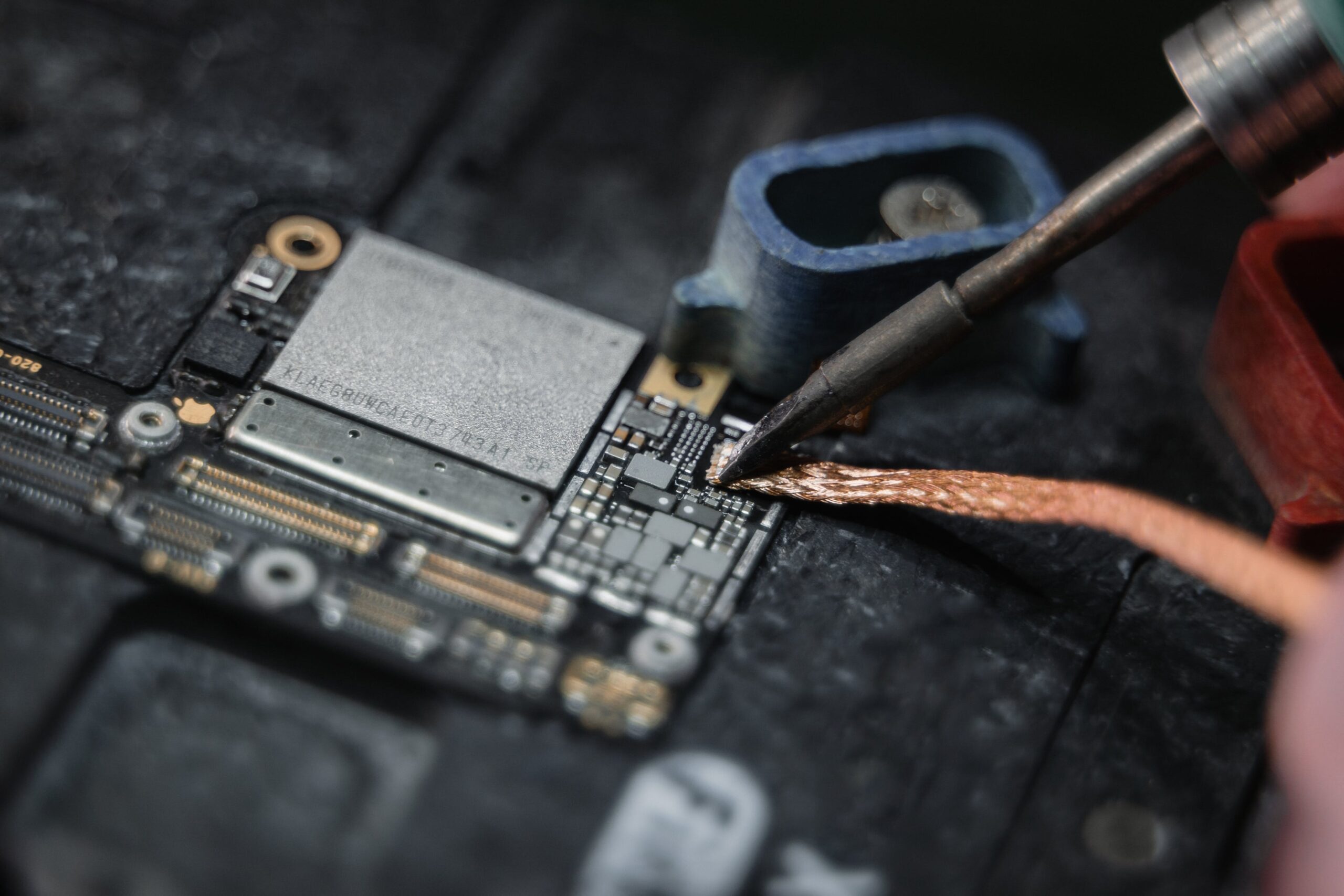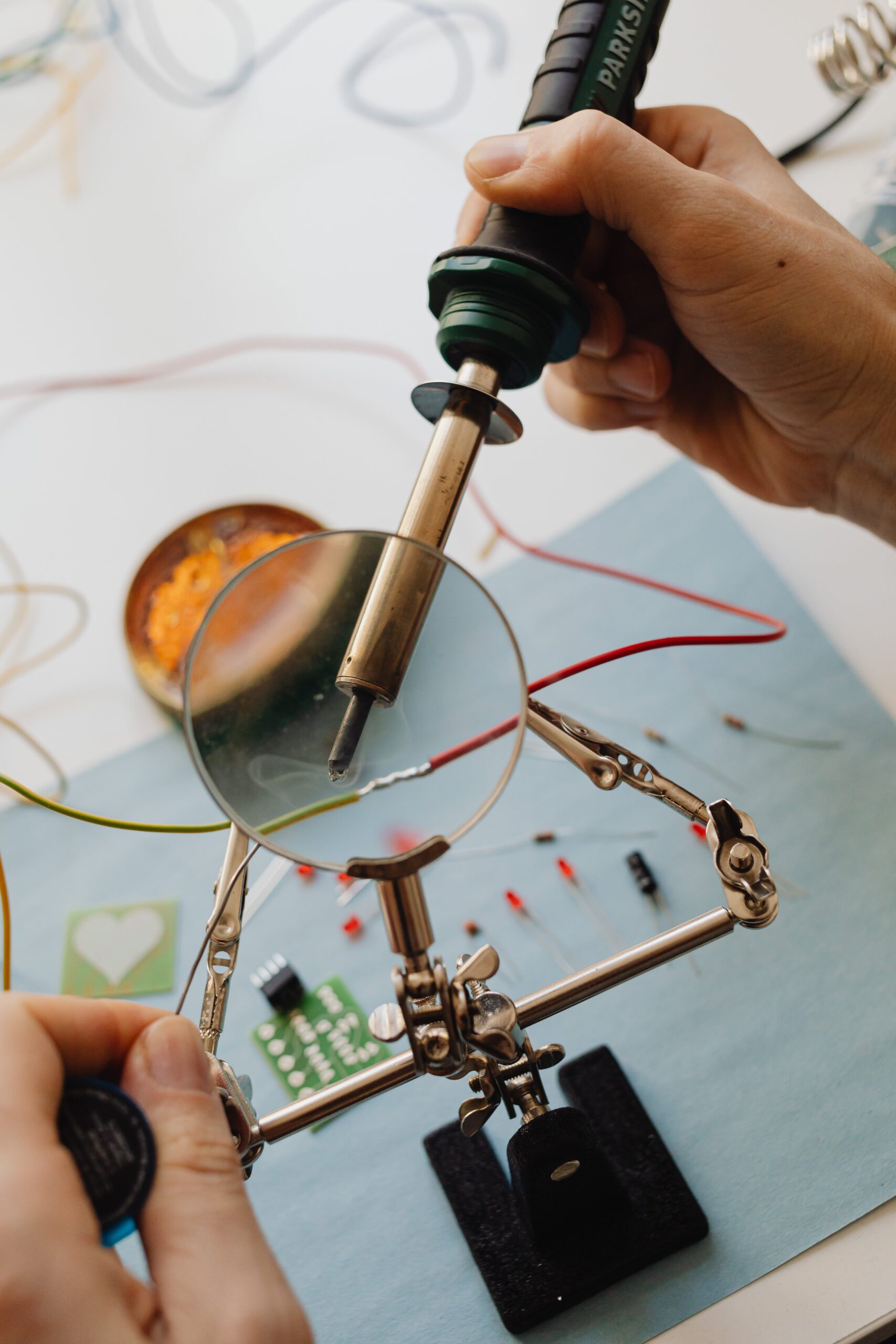Unlocking the Power of Basic Soldering Skills: Everyday Applications at Home

Soldering is a fundamental skill in electronics and metalwork, but it can also find practical applications around the house. With some basic soldering skills and the right tools, you can tackle various DIY projects and repairs. In this article, we’ll explore some common uses for soldering around the house.
- Electronics Repair: Soldering is often associated with electronics, making it a valuable skill for fixing various gadgets. You can repair loose wires, broken connections, or replace damaged components on devices like smartphones, laptops, headphones, and even household appliances.
- Lamp and Lighting Repairs: If you have a flickering lamp or a loose wire in a lighting fixture, soldering can help restore it to working condition. Soldering a loose connection or replacing a damaged wire can save you from buying a new lamp.
- Audio and Speaker Repair: For audiophiles and music enthusiasts, soldering skills can come in handy for repairing or modifying speakers and audio equipment. You can re-solder loose connections or replace damaged speaker components, ensuring high-quality sound.
- Jewelry Repairs: Soldering can be used to repair broken jewelry, such as bracelets, necklaces, or earrings. Whether it’s reattaching a pendant or fixing a broken chain, basic soldering skills can save your precious pieces.
- Plumbing Repairs: While copper plumbing pipes are usually soldered by professionals, you can still use soldering for minor plumbing repairs. For example, you can fix a small leak in a copper pipe or solder a new fitting.
- Home Automation: If you’re into DIY home automation, soldering is essential for building custom circuits and sensors. You can create smart home solutions like temperature sensors, motion detectors, or custom lighting controls.
- Small Appliance Repairs: Soldering skills are valuable for repairing small appliances like coffee makers, toasters, or irons. You can fix damaged wires, broken connections, or replace burnt-out components.
- Vehicle Repairs: While soldering is not typically used for major automotive repairs, it can be handy for fixing wiring in your car or motorcycle. Solder loose connections in the electrical system or repair damaged cables.
- Custom Cables and Adapters: Sometimes, you may need custom cables or adapters that aren’t readily available in stores. With basic soldering skills, you can create custom cables for audio/video connections, chargers, or data transfer.
- Toys and Hobby Projects: Soldering is a valuable skill for building or repairing toys, models, and other hobby-related projects. Whether it’s fixing a remote-controlled car or assembling model trains, soldering can be a crucial part of the process.
 Tips for Safe and Effective Soldering Around the House:
Tips for Safe and Effective Soldering Around the House:
- Always work in a well-ventilated area to avoid inhaling soldering fumes.
- Use appropriate safety gear, including safety glasses and heat-resistant gloves.
- Ensure that you have the correct solder and soldering iron for the specific material you’re working with.
- Practice good soldering techniques to achieve clean, strong connections.
- Invest in a quality soldering iron and soldering station for more precise and controlled work.
- When soldering near flammable materials, take extra precautions to prevent fires.
- Prioritize safety and use common sense when working with heat and electricity.
Basic soldering skills are a valuable addition to your DIY toolkit, allowing you to tackle various household repairs and projects. Whether you’re fixing electronics, jewelry, plumbing, or building custom solutions, mastering the art of soldering can save you money and provide the satisfaction of a job well done.
Comments
Add comment